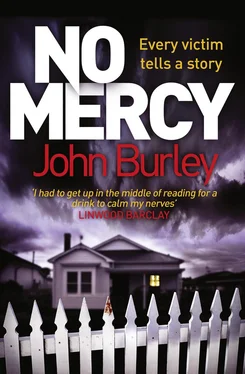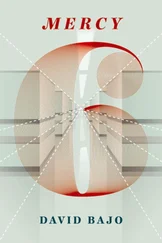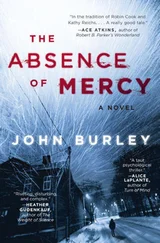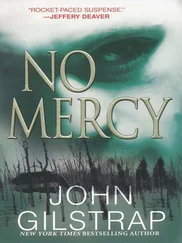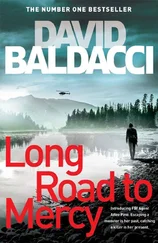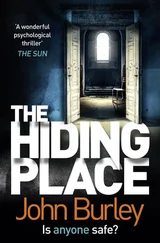Sam had stopped by Ben’s house that night with the investigating detectives. The girl’s story was convincingly consistent, they informed him. She was either innocent or an exceptionally good liar – which left one or both of the parents as the only remaining suspects. The detectives wanted to know how hard they should press the parents, and whether the evidence from the autopsy suggested one more than the other as a likely culprit. The mother and father were already traumatized, Sam noted, and they didn’t want to go after them unnecessarily. It was a fragile situation.
Of the two detectives accompanying Sam that evening, one of them – a small, wiry man named Harvey Nickelback – had not exactly been in agreement with the cautious approach Sam had asked them to take.
‘I don’t see why we have to pussyfoot around this,’ he’d objected vociferously, tracing the outline of his thin mustache between his right thumb and index finger. ‘This kid had retinal hemorrhages and a head full of blood. That’s pretty convincing evidence for child abuse, as far as I’m concerned.’
‘That’s why the case is under investigation,’ Sam had replied. ‘If this death was due to shaken baby syndrome, then whoever did it will go to prison.’
‘All right, then,’ Nickelback agreed ardently.
‘But we have to be careful,’ Sam continued. ‘I don’t want to go after these parents with everything we’ve got until we’re fairly certain that we’re going after the right people. Keep in mind that they’ve just lost their only child. They’re in a world of pain right now.’
‘Or guilt,’ the detective countered.
‘Probably both. But we only have one chance to do this right.’
That was the thing that had impressed Ben the most about Sam: the delicacy with which he had handled the situation. He’d never mentioned it, but Ben thought that perhaps Sam had had an instinct about the case – somehow sensing that things didn’t quite fit together in the way that they should, although he probably would’ve been hard-pressed to explain why. In the face of nearly overwhelming evidence, he had asked the detectives to wait, to suspend their judgment a bit longer. In the end, it had been the right thing to do. The forensic chemist’s report that had landed on Ben’s desk the following week had identified high levels of glutaric acid in the infant’s organs, particularly in the brain and muscles. The abnormal levels raised suspicion for the possibility of a rare metabolic disorder, glutaric acidemia type 1, in which the body has difficulty breaking down various amino acids. The accumulation of the metabolic by-products, the report went on to explain, often results in multiple clinical manifestations, including mental retardation, alterations in muscle strength and tone, and hemorrhages in the brain and eyes that can be mistaken for child abuse. That explained the retinal hemorrhages and subdural hematomas Ben had discovered on autopsy. The forensic chemist’s findings had changed everything, for it became clear that the infant had not been the victim of child abuse, after all, but rather had died from complications of a rare genetic disorder. Sam’s instinct to wait, therefore, had been correct.
‘—evenson?’
It had been a remarkable thing, that intuition, and –
‘Excuse me. Dr Stevenson?’
Ben looked up from his desk, his eyes clearing. The CO’s secretary stood in the doorway of his small office, looking in on him.
‘What is it, Tanya?’ he asked.
‘That was Detective Schroeder on the phone,’ she said. ‘He’s here with the boy’s father. They’re pulling into the parking lot now.’
Phil Tanner was a tall, lanky man with a weathered face and a darkened, sun-battered complexion. He still wore his work clothes from the night before – faded dungarees and an old navy blue button-down shirt that bore the unmistakable bulge of a pack of cigarettes (Marlboros, if Ben had to guess) in the front pocket. Detective Carl Schroeder stood beside him, wearing a dark suit with a maroon tie. His black gelled-back hair matched the color of his shoes perfectly. He was shorter than both Ben and Phil Tanner by several inches, but his build was lithe and wiry, his eyes cool and watchful, and Ben imagined that in a physical altercation the detective was a force to be reckoned with. Schroeder introduced the two men in a brisk, practiced manner.
‘Mr Tanner.’ Ben greeted the boy’s father, shaking the large, calloused hand extended in his direction.
The man nodded slightly, saying nothing. He stood tense and rigid in the hallway.
‘Sir, I know this must be an extremely difficult time for you,’ Ben continued. ‘You are welcome to come sit in my office for a moment until you feel that you’re—’
‘Where’s my boy?’ Tanner responded, looking over Ben’s shoulder into the next room. His voice was deep and gruff, the product of too many years spent smoking too many cigarettes.
‘Well, we were hoping you could identify—’
‘Let me see ’im then.’
‘Yes, of course,’ Ben agreed. He led the two men into the next room. He had taken as much care as possible to prepare the boy’s body – his face, anyway – for viewing. His injuries had been severe and disfiguring, and Ben was no plastic surgeon. Suddenly he wanted more time to work on the boy, especially that gaping bite wound across his left cheek. He’d been able to pull the wound edges together using a series of horizontal mattress sutures, but now it didn’t seem nearly sufficient to withstand the eyes of the boy’s father.
‘The wounds were fairly extensive,’ he explained to them, somewhat apologetically. ‘There’s been some significant disfigurement to the face.’ Ben carefully folded down the edge of a cloth blanket he’d placed over the body prior to their arrival. He tried to brace himself for the father’s response.
Phil Tanner was quiet for a long moment, studying the boy’s marred but placid appearance. He looked upon him with a surreal and uncertain fascination. In the front room the phone rang, and Ben heard Tanya answering it. ‘Coroner’s Office,’ she said, and Ben silently kicked himself for forgetting to have her put the phones on hold during the visit. The sound seemed to break Phil Tanner’s trance, and he looked up at them with confusion.
‘That ain’t my boy,’ he said, and Ben exchanged a surprised look with Detective Schroeder.
‘That’s not your son, sir?’ Schroeder asked.
‘No,’ the man answered. He shook his head as if to clear it. ‘Wait. That’s not exactly right. What I mean to say is that, yes, it is my son, but it … it’s just that he don’t look like my son.’ He searched the faces of the two men standing before him, attempting to make himself understood.
‘He’s sustained some injuries that alter his appearance,’ Ben explained again.
‘I can see that for myself, Doctor.’ Phil Tanner’s eyes flashed at Ben, who took an involuntary half step backward. ‘I’m not an idiot.’
‘Take it easy, Mr Tanner,’ Detective Schroeder interjected in a calm and level voice. ‘Something like this always comes as a great shock. I can assure you that Dr Stevenson was not implying—’
If Phil Tanner heard him, he didn’t seem to notice. His left hand groped beneath the blanket, finding the boy’s cold, insensate hand. He grasped it tightly.
‘Kevin?’ he asked, puzzled and unbelieving. ‘Kevin? Kevin? ’ His voice rose steadily in pitch and urgency each time he spoke the boy’s name. The words echoed slightly off the room’s concrete walls. They had a hollow, lonely sound, like a knock at a door that will never be answered.
At last Tanner looked up at Ben, his eyes pleading. ‘That ain’t my boy, is it, Doctor? I mean … Jesus … Tell me this ain’t my son lyin’ here on this table with his face torn to pieces! Tell me that, won’t you, Doctor?! ’
Читать дальше
